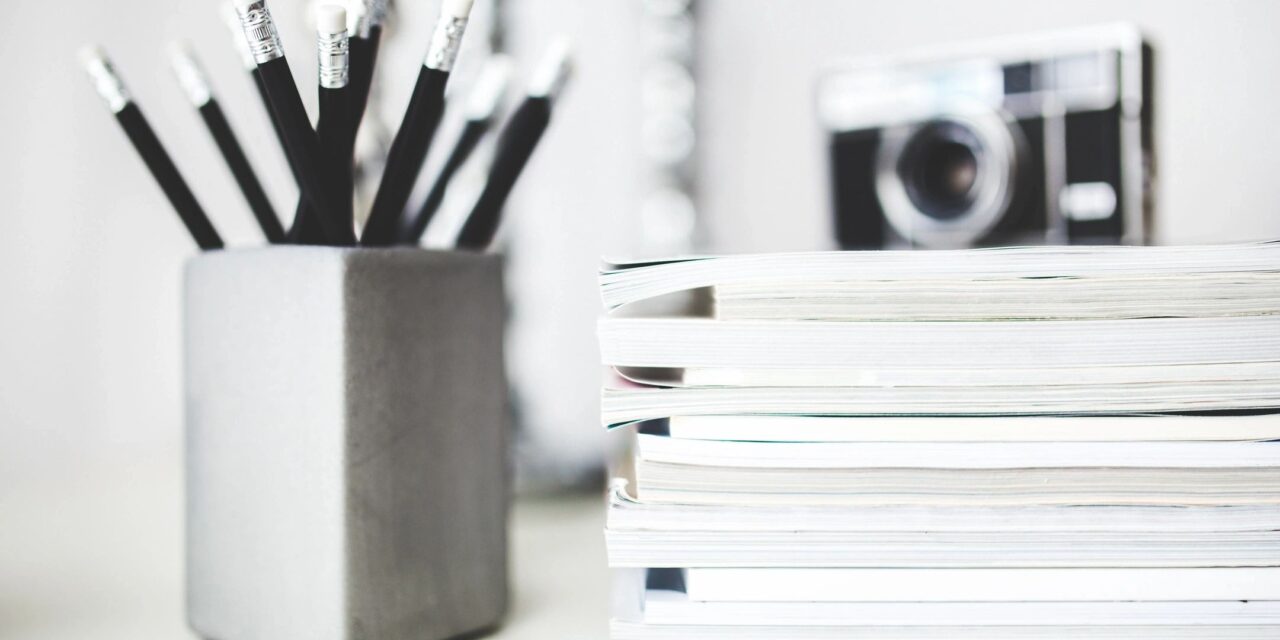Can you plagiarize yourself? If you write an original book and call it “Book Number 123456789” and self-publish it as Gary Godforbidz could you use the same identical content in another book and call the second one “Book Number 987654321” and self-publish it as Zdirofdog Yrag? I mean it’s your original content in both books, right? You didn’t plagiarize another writer. You used a pen name, right? It’s your copyright, right? Well, maybe not. I wrote about this subject in Blog Number 158, titled, “Ethics of Self Plagiarism,” and published it on this blog site on September 9, 2019. This is an update.
Some of what I wrote in 2019 is repeated here, just to remind you about the complexity, necessity, and absurdity of the topic. Of course, law is law, and we need to protect the public, mainly our readers, from re-reading what we write just as we have to protect, abstractly, the writing profession. We can do that by disdaining and insisting that we write original work and don’t steal the ideas, thoughts, or written work of others. But just for the argument of it, is it possible to steal from yourself? You’re not another, are you? Isn’t what you think, write, sell, or publish your own product and therefore impossible to “steal?”
Madame Wikipedia herself seems a little ambivalent if not agnostic on the topic. “Plagiarism is typically not in itself a crime, but like counterfeiting, fraud can be punished in a court for prejudices caused by copyright infringement violation of moral rights, or torts.”[1]
Madame Wikipedia is not a dictionary, but she is insistent about plagiarism. “Plagiarism is the fraudulent representation of another person’s language, thoughts, ideas, or expressions as one’s own original work. Although precise definitions vary depending on the institution, in many countries and cultures plagiarism is considered a violation of academic integrity and journalistic ethics, as well as social norms around learning, teaching, research, fairness, respect, and responsibility. As such, a person or entity that is determined to have committed plagiarism is often subject to various punishments or sanctions, such as suspension, expulsion from school or work, fines, imprisonment, and other penalties.”[2]
Self-plagiarism is not a crime. There do not seem to be any reported criminal cases against someone who plagiarized himself. But it has serious consequences and is more common than you would think. In fact, it is the most common form of plagiarism. It can be committed intentionally or by accident. Most often it happens when a writer uses their previous thoughts, ideas, or words repeatedly in a new work. A technical definition shows up on research and academic sites. “Self-plagiarized content is text material, images, graphs, videos, charts, manuscripts, audios, or any form of previous work done by yourself if reused without citing or referencing the last work. It often happens when authors republish or reuse their previous writings, including journals, published articles, and chapters from their previous books in their current writing. Sometimes they copy some paragraphs and key information relevant to the current topic. If they do it without crediting their previous writings and without permission from the earlier publications, then their work will fall under self-plagiarism.”[3]
Lawyers are consistent, if not insistent plagiarists. The law comes from statutes, rules, regulations, proscriptions, appellate opinions, and common law case law. We use all of it in writing briefs, letters, arguments, opinions and orally in and out of court all the time. We are careful to cite sources and rely on written precedent. But the revelations found in the ideas and thoughts of other lawyers, judges, and justices are often repeated without saying or citing the original source. I wrote a book about a famous Fifth Amendment case handed down by the U.S. Supreme Court. In that book I repeated earlier law, current law, proposed changes, and arguments for the holdings in the famous case of Miranda vs. The State of Arizona. After publication for a dozen years or more, I used those original thoughts, ideas, notions, arguments, and challenges in scores of venues—op-eds, interviews, after-dinner speeches, and one-on-one discussions with clients, judges, fellow lawyers, and scores of police officers, both state and federal. No one questioned my right to repeat what I had originally written in my book. I’m sure the same thing happens in every profession and academic setting in America.
Self-plagiarism is ethically wrong and professionally problematic. Presenting someone else’s work as your own is considered intellectual theft. Plagiarism includes self-plagiarism. “As the name suggests, the definition of self-plagiarism is the act of reusing some or all your previous work without disclosing or citing it. Like general plagiarism, it can happen intentionally or unintentionally. Many forms of self-plagiarism are admittedly easy to commit without even realizing it. The most common examples of self-plagiarism are in academics and business. Academic self-plagiarism involves reusing your previous academic work without citing it or informing your professors. In some cases, academic self-plagiarism is a violation of an institution’s academic integrity policy. Professional self-plagiarism occurs when a professional writer reuses their prior pieces in work for other clients. Depending on the situation, this can be a violation of freelance and publishing contracts. It includes inaccurate authorship. While self-plagiarism is more of an ethical issue than a legal one, that doesn’t mean the consequences of misrepresenting your own work aren’t serious. Copyright infringement is using selections from your own previously published work without proper attribution.”[4]
Perhaps the most helpful piece on this subject is The Indie Author’s Guide to Managing Plagiarism: Self-Publishing Platforms. “In our digital era, when copying and pasting is so easy, and when anyone can put a formatted document on an online retailer and start trading, many writers are seeing their work being appropriated without their permission. Some books are copied word-for-word while others are tinkered with just enough to make it tough for an automated plagiarism checker to flag them. When a reader buys a self-published book online, the retailers keep 30 percent or more of the income as sales commission—so they make money whether a book is plagiarized or not. A trade publisher is liable if it puts out a book that violates copyright but self-publishing platforms like Amazon KDP, Kobo Writing Life or Ingram Spark are not publishers, but publishing platforms. The author is the publisher. And as retailers and distributors Amazon, Kobo, and Ingram are protected, as long as they remove offending content on request. Books known to be plagiarized are removed from the platforms. However, it can take a while for the services to respond to complaints. The offending books need only stay up for a few months or even weeks for the plagiarist to profit. For an author, being plagiarized goes beyond the commercial implications. Writing is a form of creative expression, and having their work appropriated can feel like a personal violation.”[5]
The point of the Indie Author’s Guide is aimed at being plagiarized. But the point of this short blog is how similar self-plagiarism is to actual plagiarism. Don’t do to yourself what you would hate having someone else do to you.
Like elections, self-plagiarism has consequences. “Self-plagiarism–or re-using your own words and representing them as new–is a form of dishonesty, it is considered an act of plagiarism. It’s easy to overlook self-plagiarism because when the researcher is the author, they make the argument that they can reuse the words that they themselves created and thus, it is not theft. But self-plagiarism is still a form of academic dishonesty. Furthermore, self-plagiarism can infringe upon a publisher’s copyright.”[6]
While there are few legal cases on record, there is one 2023 case in which a university dismissed a faculty member, in part, because he self-plagiarized some of his research papers, which violated the university’s faculty rules. The university said, “Self-plagiarism is unethical and viewed seriously at major universities, [and] we will not condone such a major breach of trust.”[7]
Ghostwriting was an issue briefly reviewed in a law review article connecting moral rights and legal issues overlapping the rights of the apparent author and his ghostwriter. A partial answer was given about whether ghostwriting could also be self-plagiarism. “Undoubtedly, intellectual property law’s main target is to provide the creators of works with a wide range of rights that are related to the economic exploitation of the work (e.g., reproduction, public performance, distribution). Apart from purely economic rights, intellectual property law also provides the creators with a narrower range of rights concerning the personal connection between the creator and the work. These rights, which regard the work as part of the creator’s personality, form a separate category of rights that are called moral rights. . . . One of the most representative examples of widely acceptable moral rights . . . is the right of the creator to be recognized in public as the creator of the work, the so-called paternity of the creator. The Berne Convention for the Protection of Literary and Artistic Works, an international treaty, accepts two specific moral rights: paternity and integrity. However, there are some cases where a deliberate differentiation between the publicly recognized creator, i.e., the ‘named’ author, and the real author.”[8]
While there is really no end to the discussion about plagiarism and self-plagiarism, it seems fitting to close with a double conundrum. Is it possible to accidentally self-plagiarize yourself? “Accidental plagiarism is one of the most common examples of plagiarism. Perhaps you forgot to cite a source or paraphrased something a bit too closely. Maybe you can’t remember where you got an idea from and aren’t totally sure if it’s original or not. These all count as plagiarism, even though you didn’t do it on purpose. When in doubt, make sure you’re citing your sources. Also consider running your work through a plagiarism checker tool prior to submission, which works by using advanced database software to scan for matches between your text and existing texts.”[9]
I might have written something in this blog that mirrors something in an earlier piece of writing. If so, I’m innocent until someone runs this text through a plagiarism checker—one that uses advanced database software or AI to scan for matches between today’s text and the tens of thousands of written documents I’ve created, sent, filed, delivered, posted, emailed, or read from at thousands of opportunities since I went to college in 1961. I’ll plead innocent until caught.
[1]https://en.wikipedia.org/wiki/Plagiarism See notes, 11 through 15.
[2] https://en.wikipedia.org/wiki/Plagiarism
[3] https://www.researchprospect.com/what-is-self-plagiarism/
[4] https://www.quetext.com/blog/self-plagiarism-does-it-really-count
[5] https://selfpublishingadvice.org/is-copyright-broken-part-2-the-indie-authors-guide-to-managing-plagiarism/
[6] https://www.turnitin.com/blog/what-is-the-impact-of-self-plagiarism-for-researchers
[7] Osman v. Alabama State University, Alabama Middle District Court. April 24, 2023. 2023 U.S. Dist. LEXIS 70759
[8] Article. “Can Ghostwriting Be Considered Consensual Plagiarism.” 63 IDEA 67.
[9] https://www.scribbr.com/plagiarism/consequences-of-plagiarism/

I am an author and a part-time lawyer with a focus on ethics and professional discipline. I teach creative writing and ethics to law students at Arizona State University. Read my bio.
If you have an important story you want told, you can commission me to write it for you. Learn how.






 I am an author and a part-time lawyer with a focus on ethics and professional discipline. I teach creative writing and ethics to law students at Arizona State University.
I am an author and a part-time lawyer with a focus on ethics and professional discipline. I teach creative writing and ethics to law students at Arizona State University.  My latest novel is Hide & Be.
My latest novel is Hide & Be.  If you have an important story you want told, you can commission me to write it for you.
If you have an important story you want told, you can commission me to write it for you.